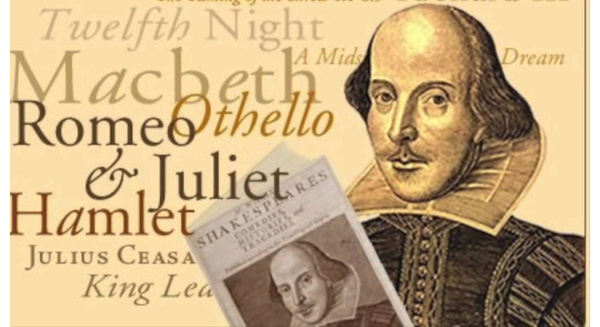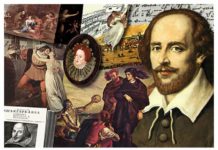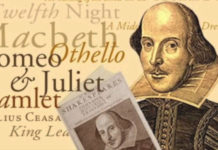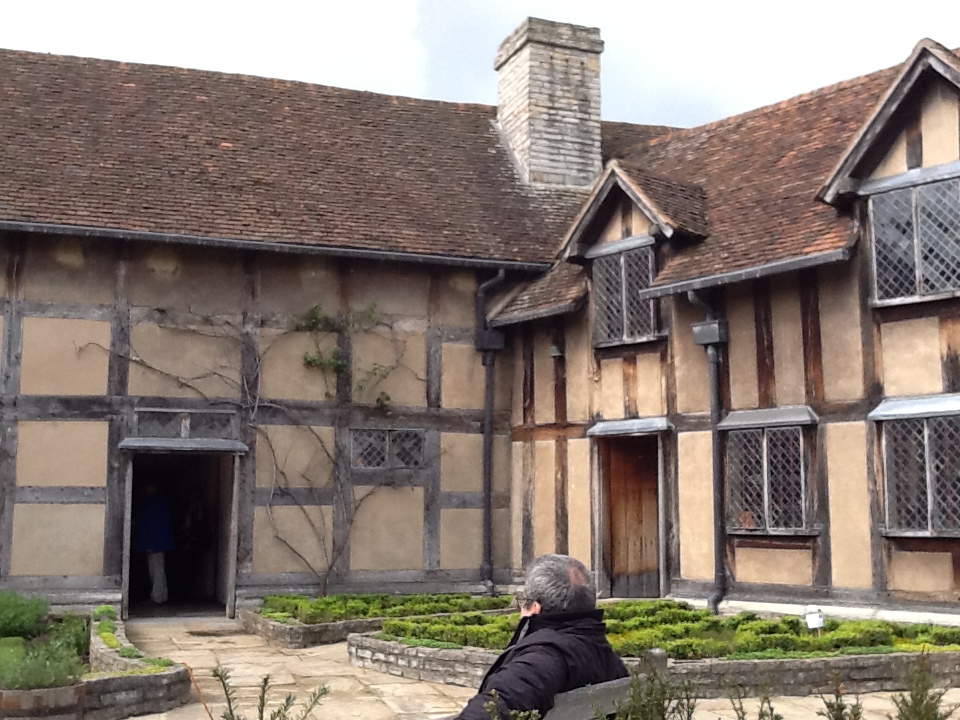Shakespeare is not just England’s greatest poet but the “Poet Laureate of the World”.
It would come as a surprise to most people that Charles Lamb, the English essayist, lavished praise, rather undeservedly, on Edmund Spenser, a contemporary of Shakespeare and the author of Faerie Queene by calling him the” Poet’s Poet”. The sobriquet however is not found in any of Lamb’s essays. The English essayist Leigh Hunt attributes it to Lamb, in his own book “Imagination and Fancy” an anthology of English poetry with accompanying commentary.
Read Part 1 Here; No Doubts About Shakespeare’s Authorship Part 1
Read Part 2 Here; No Doubts About Shakespeare’s Authorship Part 2
Read Part 3 Here; No Doubts About Shakespeare’s Authorship Part 3
Read Part 4 Here; No Doubts About Shakespeare’s Authorship Part 4
Read Part 5 Here; Shakespeare And The Oxford Theory
Read Part 6 Here; No Doubts About Shakespeare’s Authorship Part 6

According to Lamb, Spencer had acted as a guide for more poets than any other writer of English verse. For almost three centuries, many poets revered him as their mentor. Because he was not afraid to speak out his views, through his poetry, he seems to have been respected by the poets of his day. When he died, his body was carried to his grave by poets who threw pens atop his burial casket in his honour.
On the other hand, every Shakespearean scholar, justifiably feels that Shakespeare alone deserves such high praise and that only he should rightly be regarded as the” Poets’ poet”, in the strictest sense of the expression.
Every time I read the Plays of Shakespeare, I come across some hitherto unnoticed aspect that serves only to reinforce my belief, that in genius he excelled the human race. Every time you read a passage, you make new discoveries. Shakespeare is like an ocean into which when you cast your net, you always come up with rare and precious gems “of purest ray serene” that you had not found before. This is how the realisation suddenly dawned on me that he is” International” in the sense he belongs to all nations. (I appeal to the reader not to point out that Shakespeare left out this country or that in his Plays. After all we are not dealing with a geography textbook or a chronicle of historical events)
Let me explain what I mean. Shakespeare’s plays are set in many exotic locations e.g from Verona and Milan to Athens and Rousillon.
The events in “As You Like It” occur in the Forest of Arden, the events in “Measure for Measure” in Vienna and the events in “All’s Well that Ends Well” in Rousillon, Paris, Florence, and Marseilles. “Antony Cleopatra” is set in different parts of the Roman Empire. The events in “The Taming of the Shrew” occur partly in Padua, and partly in Petruchio’s home in the country. The events in “ The comedy of Errors” occur in Ephesus. The events in “Coriolanus “ take place in Rome, Corioli, and Antium. Cymbeline is set in Britain and Italy. The events in “Julius Caesar” occur in Rome, to begin with and afterwards, in Sardis and near Philippi.
The events in “Macbeth” take place in Scotland and England. ” A Midsummer Night’s Dream” is set in Athens, and a wood nearby. The incidents in “Much Ado about Nothing” take place in Messina. The events in “Othello” occur in Venice (for first act) and a sea-port in Cyprus afterwards, in Romeo and Juliet it’s in Verona and Mantua; in Tempest it’s partly in sea and partly in an island; in Pericles it’s various countries. Love’s Labour Lost is set in Navarre.
Most scholars hold the view that Sophocles or Aristophanes never wrote a play more Greek than “Timon of Athens”. One wonders whether Shakespeare was actually a citizen of ancient Greece, and had witnessed the conquests of Alexander. It is not unlikely that he had written the speeches for the great Greek orators, Demosthenes and Pericles, or that he had observed Phidias carving the Parthenon. However, he revealed his real opinion about sculptors in general when on provocation he wrote about the permanence of his Poetry,
“Not marble nor the gilded monuments
Of princes shall outlive this powerful rhyme”
In one of 154 great sonnets, which by themselves would compel us to regard him as the greatest of poets.
Can anyone imagine a play more Egyptian than “Antony and Cleopatra”? The Nile meanders through it and the gigantic shadows of the Pyramids and the Sphinx fall over it even as they gaze into the desert sands “with eternal eyelids apart”.
Has any Egyptian poet described an Egyptian Queen’s irresistible charm in a more convincing and aesthetic manner, than Shakespeare has, in paying a tribute to Cleopatra’s beauty, by making Enobarbus say
“Age cannot wither her, nor custom stale
Her infinite variety. Other women cloy
The appetites they feed, but she makes hungry
Where most she satisfies”
These lines sum up the seductive wiles, and” infinite variety” of Cleopatra which changed the course of the history of Rome.
Italian passion and romance ignite every page of” Romeo and Juliet” as young love bursts forth like an erupting volcano. No poet has paid greater homage to young lovers than Shakespeare has to these two young lovebirds, of Verona, whose love for each other eluded mortality. Shakespeare could give lessons to Gibbon on the rise, decline and fall of the Roman Empire. We shudder in shock and despair as Julius Caesar is stabbed in the Roman Senate. We gasp in admiration and awe as Antony stirs up a peaceful crowd, to become a violent mob working itself up in rage to “rise and mutiny”. Is there any speech in the entire literature of the world as powerful and soul stirring as Antony’s funeral Oration.
Yet for all his international outlook Shakespeare could be and in fact was very English and a true citizen of England as can be noticed in his historical plays.
Only a man with enormous love for his country could have made John of Gaunt say with pride, about England.
“This royal throne of kings, this sceptred isle,
This earth of Majesty, this seat of Mars,
This other Eden, demi-paradise;
This fortress built by Nature for herself,
Against infection and the hand of war,
This happy breed of men, this little world,
This precious stone set in a silver sea,
Which serves it in the office of a wall,
Or as a moat defensive to a house,
Against the envy of less happier lands;
This blessed plot, this earth, this realm, this England,
This nurse, this teeming womb of royal kings,
Feared by their breed, and famous by their birth”
Space limitation does not permit me to quote more instances but it would not be appropriate to end this article without referring to” The Tempest”, which most Shakespearean scholars feel is his greatest play.
“The Tempest” is set in a strange island, which scholars are tempted to believe is the “New World”. Shakespeare has diverted all his dramatic technique, language and vocabulary from his earlier plays to a single powerful play before taking leave of his poetic magic and retiring like Prospero. Shakespeare has put into the mouth of Prospero melodious expressions, beautiful phrases, and musically sounding words that raise language to a level to which it has not been possible for any other playwright or poet, of any country to approach. One wonders whether he had subconsciously anticipated the phenomenal development and evolution of America—whose power, affluence and economic miracle have no parallel in history.
For all these reasons Shakespeare is not just England’s greatest poet. I am inclined to regard him as the “Poet Laureate of the World”. It’s not only the crowning glory of England but the crowning glory of all mankind that such a man as William Shakespeare should ever have been born.
THE END


















































